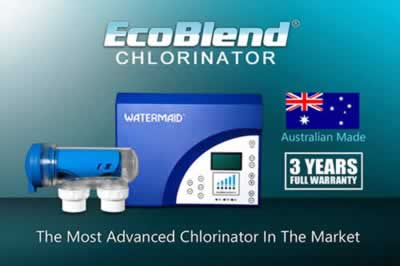
Benefits of a magnesium or mineral pool
The benefits of magnesium are well documented, with strong evidence to suggest that it is beneficial for skin, bones, and respiratory conditions... |

How long to run pool equipment
A chlorine residual (or reserve) of 1 - 3 ppm is required for any imminent bather load in a pool. Ideally, the time clock should be set to operate the chlorinator from late afternoon to continue... |

How Pool Chlorinators Work
Salt water chlorinators produce chlorine in-situ, as mild salty water passes through the electrolytic cell. Produced over a period of several hours, it is more evenly dispersed in the water... |
| READ MORE |
READ MORE |
READ MORE |

Low Chlorine Output
This shouldn’t be confused with low chlorine readings from the pool water. There are several reasons why the chlorinator will display a low chlorine output reading, regardless of brand... |

pH and Water Balance
To ensure sparkling clean pool water, it is important to maintain balanced water. For swimming conditions, it is recommended to keep the pH between 7.2 and 7.8 for bather comfort and... |

Pool Chlorinator Warranty Tips
There are some brands on the market claiming up to six years warranty. But did you know that these are almost always a pro-rata warranty and you should always read the warranty terms... |
| READ MORE |
READ MORE |
READ MORE |

Sparkling pool with backwash
Is your pool cloudy? It could be a filtration problem and may be solved by simply running a backwash... |

Why no sign of chlorine
Test results can vary depending on the time of day and from where in the pool the sample was taken. It is best to... |

Why salt water chlorinators?
There are many advantages to owning a salt water chlorinator. No more handling hazardous chlorine chemicals... |
| READ MORE |
READ MORE |
READ MORE |

Glossary
Our glossary contains a list of common pool-related terms and their definitions... |
|
|
| READ MORE |
|
|
| |
|
|

